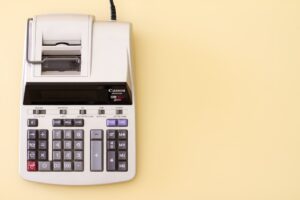Thomas Cook Forex Card vs. Other Payment Methods: Which One is Right for You?
When it comes to traveling abroad, managing your finances efficiently is key. You want to ensure that you have a safe, convenient, and cost-effective method of making payments during your trip. Two popular options for managing your money while traveling are the Thomas Cook Forex Card and other payment methods such as credit cards, debit cards, and cash. In this article, we will compare these options to help you decide which one is right for you.
Thomas Cook Forex Card:
The Thomas Cook Forex Card is a prepaid travel card that allows you to load multiple currencies onto a single card. It offers several advantages over traditional payment methods:
1. Convenience: With the Thomas Cook Forex Card, you don’t have to worry about carrying multiple currencies or exchanging money at airports or local banks. You can load up to eight different currencies onto the card, which means you can use it in multiple countries without any hassle.
2. Security: The Forex Card is protected by a PIN, just like a debit card, making it secure against theft or loss. Additionally, in case of loss or theft, you can easily get the card blocked and get a replacement card or emergency cash.
3. Competitive exchange rates: Thomas Cook offers competitive exchange rates on their Forex Card, which means you get more value for your money compared to exchanging cash at airports or local currency exchange offices.
4. Wide acceptance: The Thomas Cook Forex Card is widely accepted at millions of merchant locations and ATMs worldwide. This ensures that you can use it for shopping, dining, or cash withdrawals without any hassle.
Credit Cards:
Credit cards are a popular payment method for travelers, but they come with certain pros and cons:
1. Convenience: Credit cards are widely accepted, making them convenient for making payments during your trip. You don’t have to carry a large amount of cash or worry about exchanging currencies.
2. Security: Credit cards offer a certain level of security against theft or loss. Most credit card companies have fraud protection measures in place, and you can easily report any unauthorized transactions.
3. Reward programs: Many credit cards offer reward programs, such as cashback or airline miles, which can be beneficial if you frequently travel. However, it’s important to note that some credit cards charge foreign transaction fees, which can add up and negate the benefits of these rewards.
4. Exchange rates: When using a credit card abroad, you may be subject to dynamic currency conversion, where the merchant converts the transaction into your home currency. This can result in higher exchange rates and additional fees.
Debit Cards:
Debit cards offer similar benefits to credit cards, but with a few differences:
1. Convenience: Debit cards are widely accepted and can be used to make payments or withdraw cash abroad. However, you may need to notify your bank of your travel plans to avoid any issues with card usage.
2. Security: Debit cards offer a certain level of security, but if your card is lost or stolen, it may take longer to get a replacement compared to a Forex Card or credit card.
3. Exchange rates: Similar to credit cards, debit cards may also be subject to dynamic currency conversion, resulting in higher exchange rates and additional fees.
Cash:
While carrying cash may seem old-fashioned, it can still be a viable option for certain situations:
1. Convenience: Cash is widely accepted, especially for small transactions or in remote areas where card payments may not be possible. It can also be helpful for budgeting purposes.
2. Security: Carrying large amounts of cash can be risky, as it is susceptible to theft or loss. It’s advisable to keep your cash in a secure place and only carry what you need for the day.
3. Exchange rates: Exchanging cash at airports or local currency exchange offices may result in higher fees and less favorable exchange rates compared to using a Forex Card or credit card.
In conclusion, choosing the right payment method for your travels depends on your personal preferences and needs. The Thomas Cook Forex Card offers convenience, security, competitive exchange rates, and wide acceptance, making it a suitable option for most travelers. However, credit cards, debit cards, and cash also have their advantages and may be more suitable for specific situations or personal preferences. It’s important to consider factors such as exchange rates, fees, security, and convenience when making your decision.






